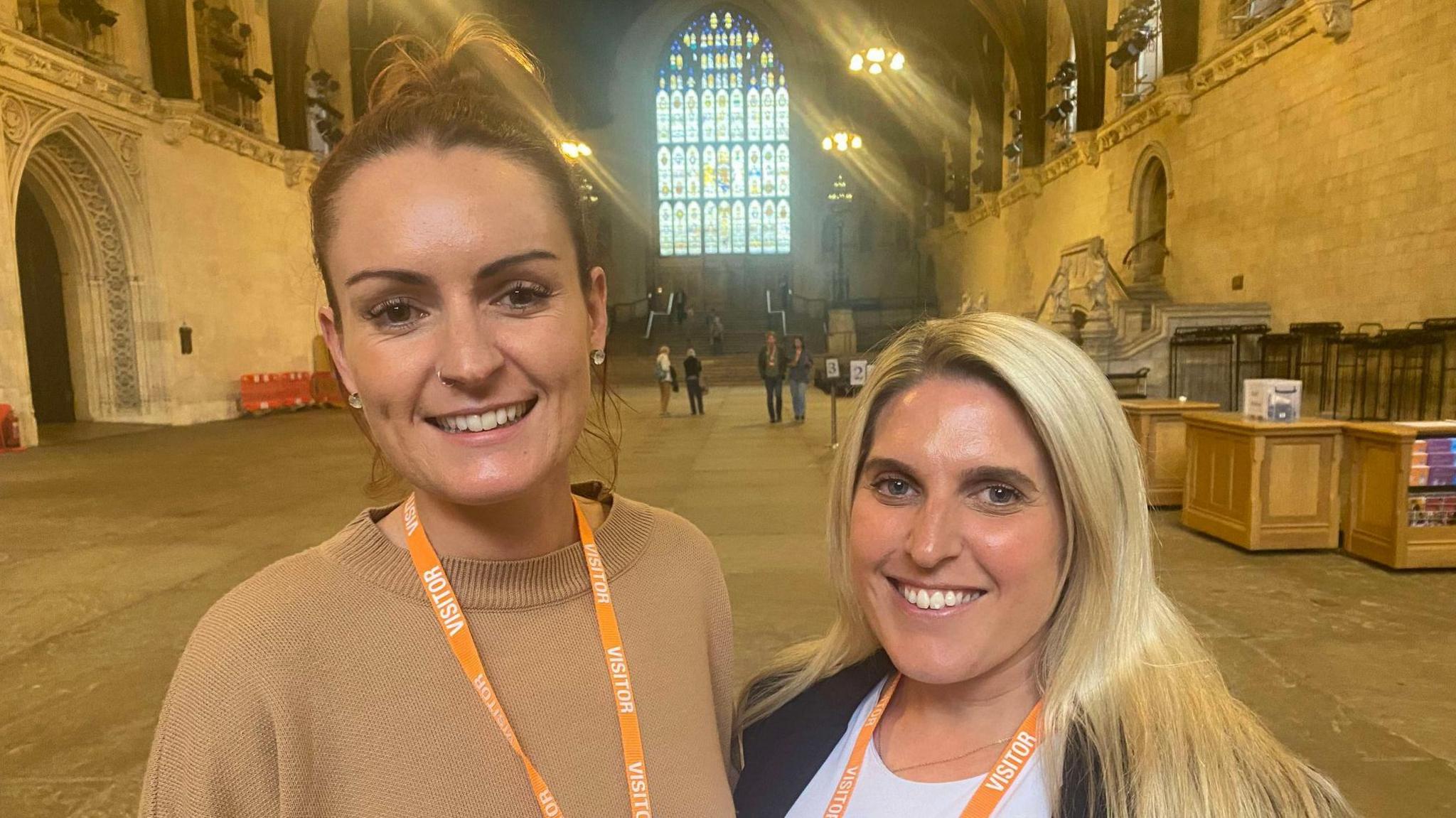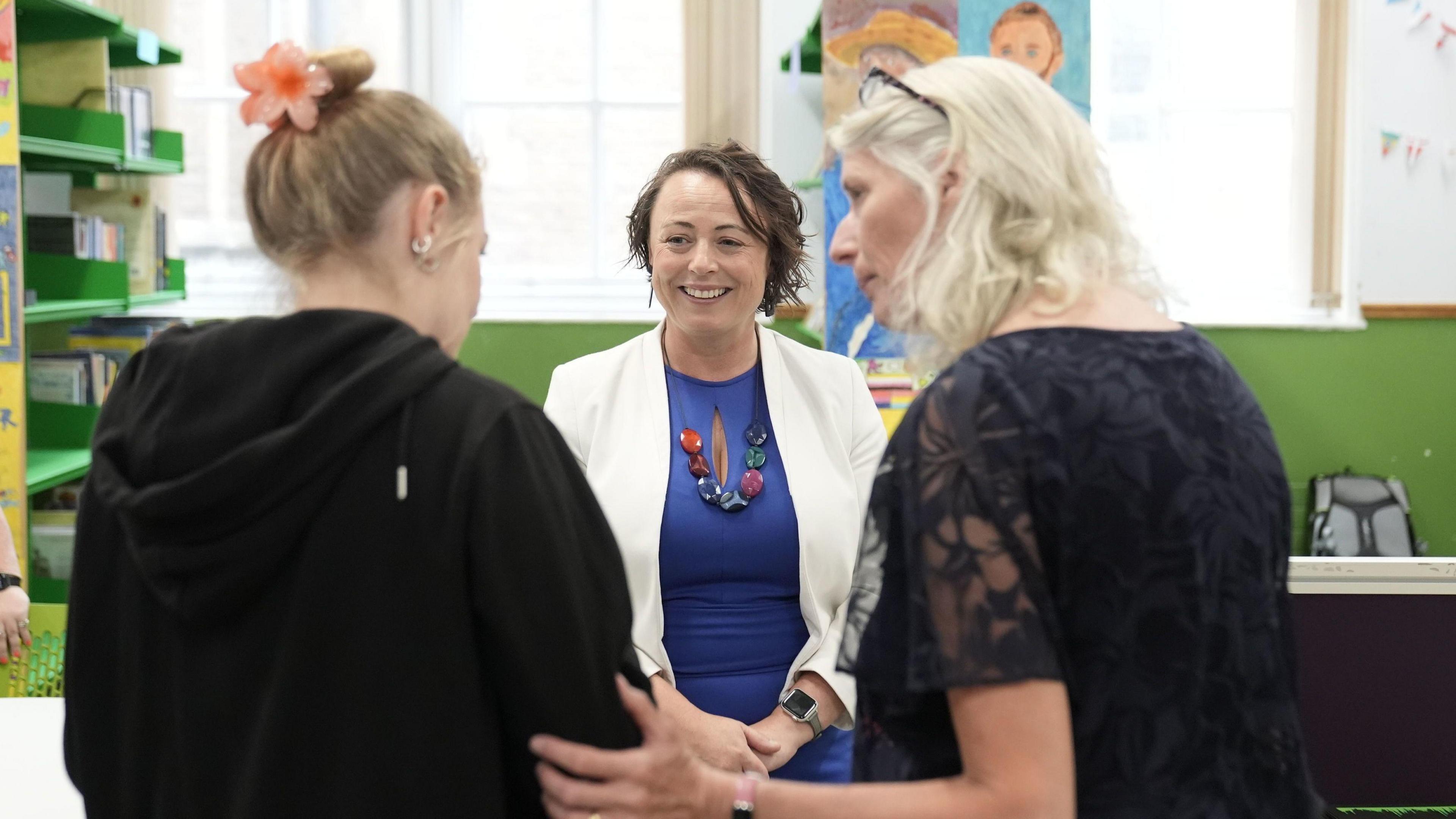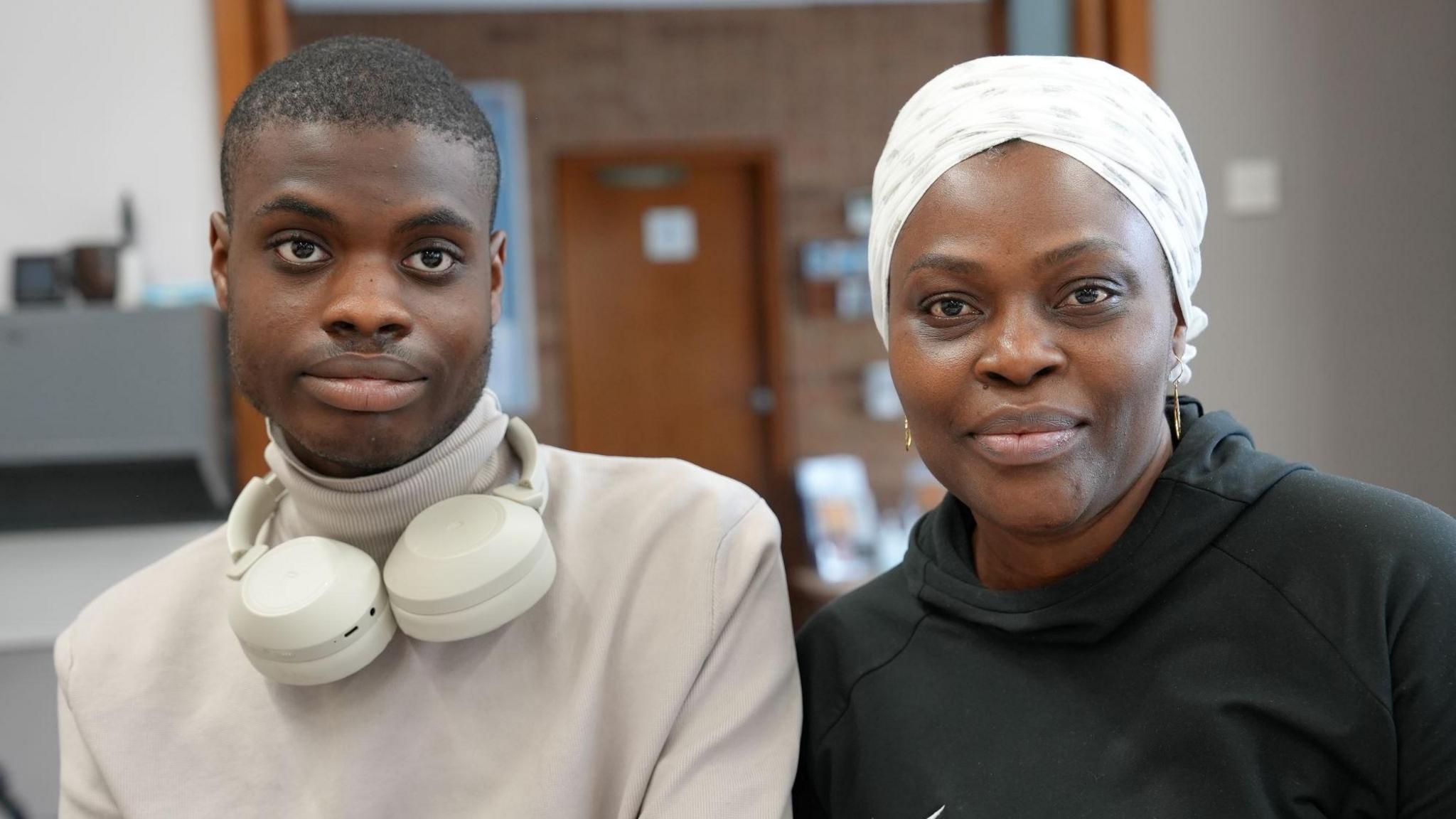No quick fix to special-needs pupil failures, parents told

Louise Polkinghorne (L) and Koreen Fisher (R) attended a SEND debate
- Published
There are no quick fixes to problems faced by families with children with special educational needs and disabilities, the schools minister has said.
Catherine McKinnell said the government was determined to reform the special-needs system.
Some children are waiting years to find out if they qualify for support from councils, which are struggling to meet demand.
MPs called for urgent action to help families in a packed-out debate in Parliament on Thursday.
The MP who secured the debate, Richard Burgon, said the process for seeking special-needs support amounted to “child neglect” and there was a funding “emergency”.
The Local Government Association (LGA) says, external councils are projected to be spending £12bn on these services by 2026, up from £4bn a decade ago.
More than 1.6 million children and young people in England have special educational needs and disabilities (SEND).
Ms McKinnell said the newly elected Labour government wanted to increase “inclusivity and expertise in mainstream schools” and improve early identification of special needs.
“After 14 years, I can scarcely see a system that is as broken, one in desperate need of reform, and that’s why we’re determined to fix it,” the minister said.
But parents who were at the debate said the minister’s plan lacked detail.
'Parents in tears' during SEND provision battle
- Published5 September 2024
Fears for children as special educational needs budgets tighten
- Published18 June 2024
'My autistic daughter has not been in school for 10 months'
- Published14 December 2023
'Nothing is being done'
Koreen Fisher, who was watching from the gallery in Westminster Hall, has a 10-year-old son with autism, ADHD, and a speech delay.
Parents can ask local authorities to assess their child and give them a specialist care plan to support their special educational needs in school.
Ms Fisher said delays to her son’s care plan meant she could not apply to any secondary schools.
When asked what she thought about the debate, she said: “Everybody seemed to be in agreement but nothing is being done.”
She said if teaching staff were given training and more resources, many children would be in mainstream schools.
Louise Polkinghorne also has a son with SEND and attended the debate to hear what MPs had to say about the problems many families like hers encounter.
She said her son needs “one-to-one support at all times” in schools and she is trying to update his care plan to reflect that.
As for the debate, she said MPs were “all saying the right thing”.
But she added: “We need more resources and unfortunately that requires money."

Schools minister Catherine McKinnell said she was aware of funding pressures
The money needed to fund the SEND system as it stands is already putting councils under huge financial pressure.
Ms McKinnell said despite high-needs funding increasing to over £10bn in 2024-25, “confidence in the SEND system is low”.
The minister said funding for SEND services would depend on the government’s next spending review, which is due to be announced in October.
“But we are working at pace and acutely aware of the funding pressures local authorities are facing,” she said.
“It’s not going to be easy or quick to solve these problems, but we really want to work on long-term solutions. That includes looking at the national funding formula.”
Sarah Morgan, the parent of a child with SEND, was watching the debate and said the minister’s statement “lacked specific details, which is perhaps due to time constraints of the debate”.
She said: “Although her intentions seem promising, addressing the crisis in SEND provision will be a long-term process as we all know requiring much more than just funding, building schools, or those smaller commitments raised in her speech today.”
- Published18 June 2024

- Published20 June 2024

- Published18 June 2024
